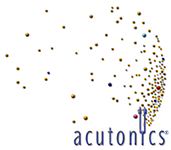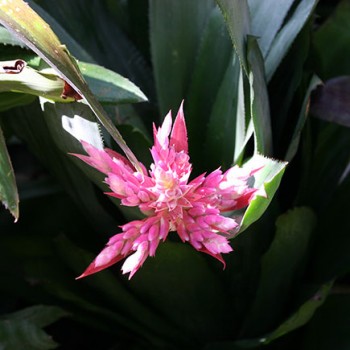Mary Elizabeth Wakefield, LAc, MS, MM and Donna Carey, LAc
Acupuncture Today, June 2003
What Is Sound?
Sound is vibratory motion. Everything around us is in constant motion, from the planets and stars to the smallest insects on the planet. Everything produces a sound vibration; therefore, everything produces sound. Some sounds we hear audibly; some we cannot. Some sounds are heard at 20 to 20,000 cycles per second; others, like the great symphony of the "music of the spheres," we hear with our spirit.
Although sound exists all around us, humans hear within a very limited range. Although we can't audibly hear all the vibratory sounds of the universe, they are still accessible to us. These sounds - these unseen powers - can be harnessed to help us heal at physical, emotional and spiritual levels. We know this is true on a musical level when we listen to music to help soothe our sadness; lighten our spirits; wake us up; put us to sleep; help us relax; or just experience the pure joy of a particular composition. We can (and do) see our depression lift, our bodies loosen and our pain subside, while our spirits soar as we feel the impact of the music in our body.
Scientific research has demonstrated that the effects of music are quantifiable and innumerable; for example, it has been proven to have an effect on blood pressure, heart rate and circulation. There is also conclusive evidence that musical sounds can reduce high fever and the intensity of physical pain.
According to scientists, our cells, molecules, atoms, glands and organs all absorb and emit sound. When relaxed, our brain waves vibrate at eight cycles per second, attuning us to the octave in music, and to the electromagnetic energy of the earth and the cosmos.
Many religions and cultures believed that sound called the universe forth into being. To the Hindus, the "mother tone," Aum, created the universe out of nothing. All the frequencies and overtones of all other sounds were contained within this seed sound.
Swiss medical doctors Hans Jenny pioneered the study of wave phenomena. His experiments applied pure tones to inert powders, pastes and liquids to demonstrate the effect of sound over matter, creating sacred, life-like, floating forms found throughout art, nature and architecture. Sir Guy Manners, an English osteopath, uses this process to achieve a balanced metabolic state in a cell or organ. Dr. Mitchell Gaynor, working at the Strang- Cornell Cancer Prevention Center in New York, uses Tibetan and crystal bowls with cancer patients. Jeffrey Thompson, DC, uses nature sounds to promote healing at the cellular level.
We use sound via vibratory tuning forks to balance, tone, and lift the muscles of the face. This treatment supports the body's ancestral DNA level via the eight extraordinary meridians; the ying or nutritive postnatal level, with specific acupuncture points; and the wei level, to release any tensions around the neck and shoulders.
Our body is nearly 80% water, making it an ideal conductor or resonator for sound. Since water corresponds to the kidney, we are indeed supporting and affecting the deepest level of cellular structural integrity and memory, especially when we open the treatment with the eight extraordinary meridians.
In this article, we offer a basic balancing tuning fork facial using two tuning forks that vibrate at the frequency of the earth as it travels through the four seasons. Scientists have proven that DNA and RNA chains have a specific resonance maximum corresponding exactly to an octave tone of the earth's rotation. This frequency is balancing, grounding and calming. It also tones, tunes and renews the face.
A more involved facial treatment works with the intervals of a 3rd, 5th, 6th and 7th, all of which have their own unique archetypal and musical qualities and can either tonify or sedate the acupuncture points and muscles.
Lao Tzu referred to the interval as "the sound of universal harmony between the forces of yin and yang."
Facial Soundscapes: Harmonic Renewal A Balancing Tuning Fork Facial Introduction
Use the two gold earth (ohm) tuning forks, and open with the eight extraordinary meridians, depending on the results of your diagnostics.
- Have the patient listen to both forks (hold them beside the head).
- Begin by placing both forks on yintang.
- For the forehead, slide both forks horizontally and vertically around the frontalis muscle; hold GB 14 (B).
- For the sinus, slide the forks over UB 2; yuyao; TH 23; GB 1; qiuhou; ST 1; UB 2; LI 20; bitong; UB 1; UB 2 TH 23
- Eyebrow lift: pinch the eyebrows together between the two forks.
- Cheek lift: ST 3 › SI 18 › taiyang (B); pinch above and below the zygomatic (cheek bone) with both forks.
- For the smile line (nasolabial fold): ST 4 › LI 20 (slide); pinch the center of the wrinkle together.
- For the lips: DU 26 › LI 19 › jiachengjiang › Ren 24 (around lips).
- Chin and jaw lift: starting with Ren 23 and 24, pinch the top of the jaw and underneath the jaw (insertion of platysma muscle); move outward toward the ear.
- For the neck: ST 9 (hold point bilaterally); under the clavicle, ST 13 › glide up the neck to underneath the jaw. Do the entire neck.
References
1. Carey D, de Muynck M. Acutonics: There's No Place Like Ohm, Sound Healing, East Asian Medicine and the Cosmic Mysteries. Vadito, NM: Devachan Press, 2002.
2. www.cymaticsource.com, April 2003.

